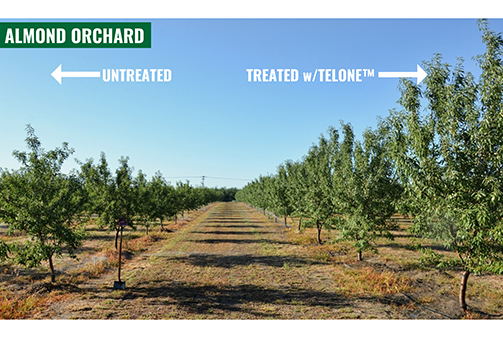Big Bucks Given To Grow Better Fruit Crops
The USDA has awarded a team of scientists from 14 universities the first of a $10-million, five-year grant to improve half a dozen fruit crops. The award is from the National Institute of Food and Agriculture’s Specialty Crop Research Initiative and involves two projects.
In the first project, “RosBREED: Combining Disease Resistance with Horticultural Quality in New Rosaceous Cultivars,” a team of 35 researchers will develop and apply modern DNA-based tools to deliver new cultivars – cultivated varieties – with superior product quality, taste and disease resistance. The crops are called Rosaceous crops and include: apple, blackberry, peach, pear, rose, strawberry, sweet cherry, and tart cherry.
Mercy Olmstead, a stone fruit extension specialist and assistant professor with UF/IFAS, will be the communications outreach specialist for all of the science advances coming out of the project, sharing them with other scientists and the public.
“Americans are interested in science and plant breeding, and my role in communicating the results of this project will help to educate our stakeholders,” Olmstead said.
The project director is Amy Iezzoni, a horticulture professor at Michigan State University.
Vance Whitaker, leader of the UF strawberry breeding program located at the Gulf Coast Research and Education Center, is the statistical genetics team lead for the project. He will have a key role in developing and implementing DNA-based tools as a strawberry demonstration breeder in the project.
Whitaker said the grant is enabling the breeding program to develop several new DNA tests, which will help better predict what crosses to make, as well as determine what seedlings to plant in the field before they have ever been evaluated. They will use new available technologies to obtain new varieties of high fruit-quality that consumers demand with disease-resistant traits that growers need.
“Employing these tests will add a new level of precision to our breeding program,” Whitaker said. ”We hope to breed better new varieties with the combinations of traits that growers, marketers and consumers all want.”
The second project will build the “Genome Database for Rosaceae,” an online genetic database of several Rosaceae fruit. The database will give researchers access to information that may help them, for example, create a bright red apple that is both firm and flavorful. Or a strawberry that is sweet, but doesn’t succumb to root and crown rots. This data can then be used in combination with DNA-based tools from RosBREED.
Kathryn Stofer, a research assistant professor with the Agricultural Education and Communication Department, will help the group determine the best way to communicate the impacts of this complex resource so that scientists can better tell their stakeholders how their research results can be implemented. “We need to go straight to the users to understand their needs, namely how do they want to get this information and make use of it? Do they understand it?”
Project director for the database is Dorrie Main at Washington State University.
The grant money for both projects is coming out of the 2014 Farm Bill.









